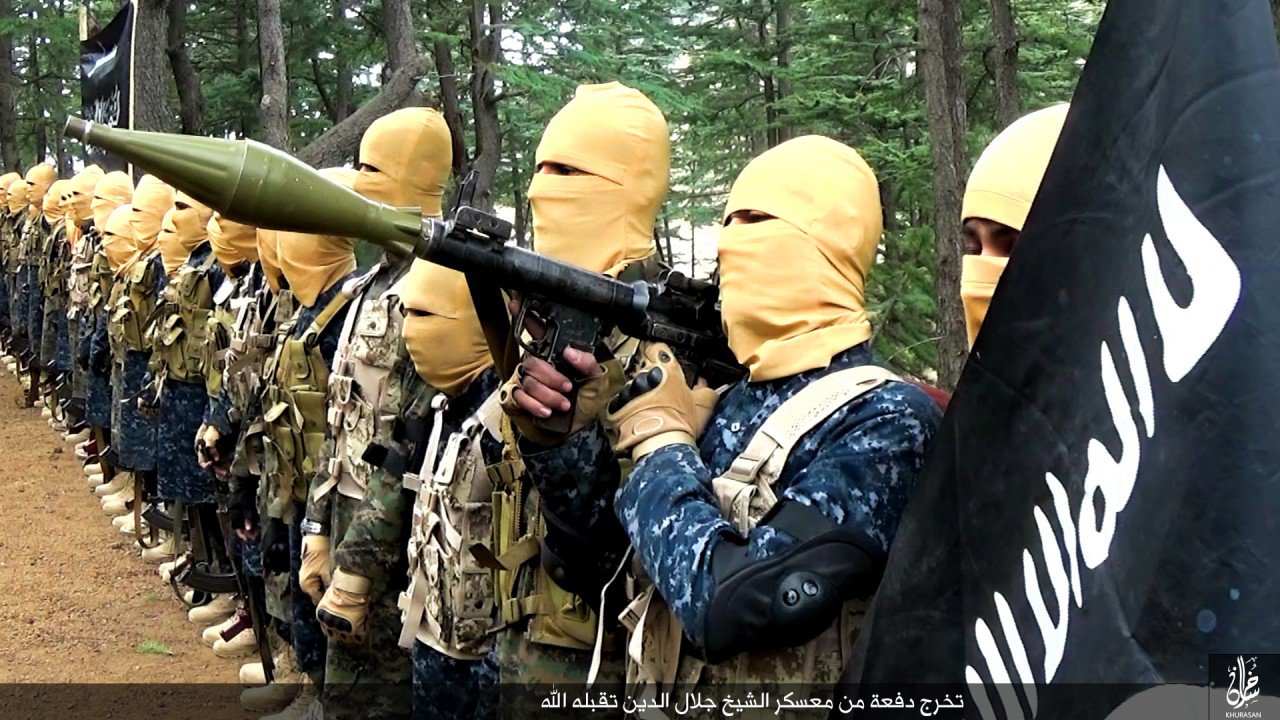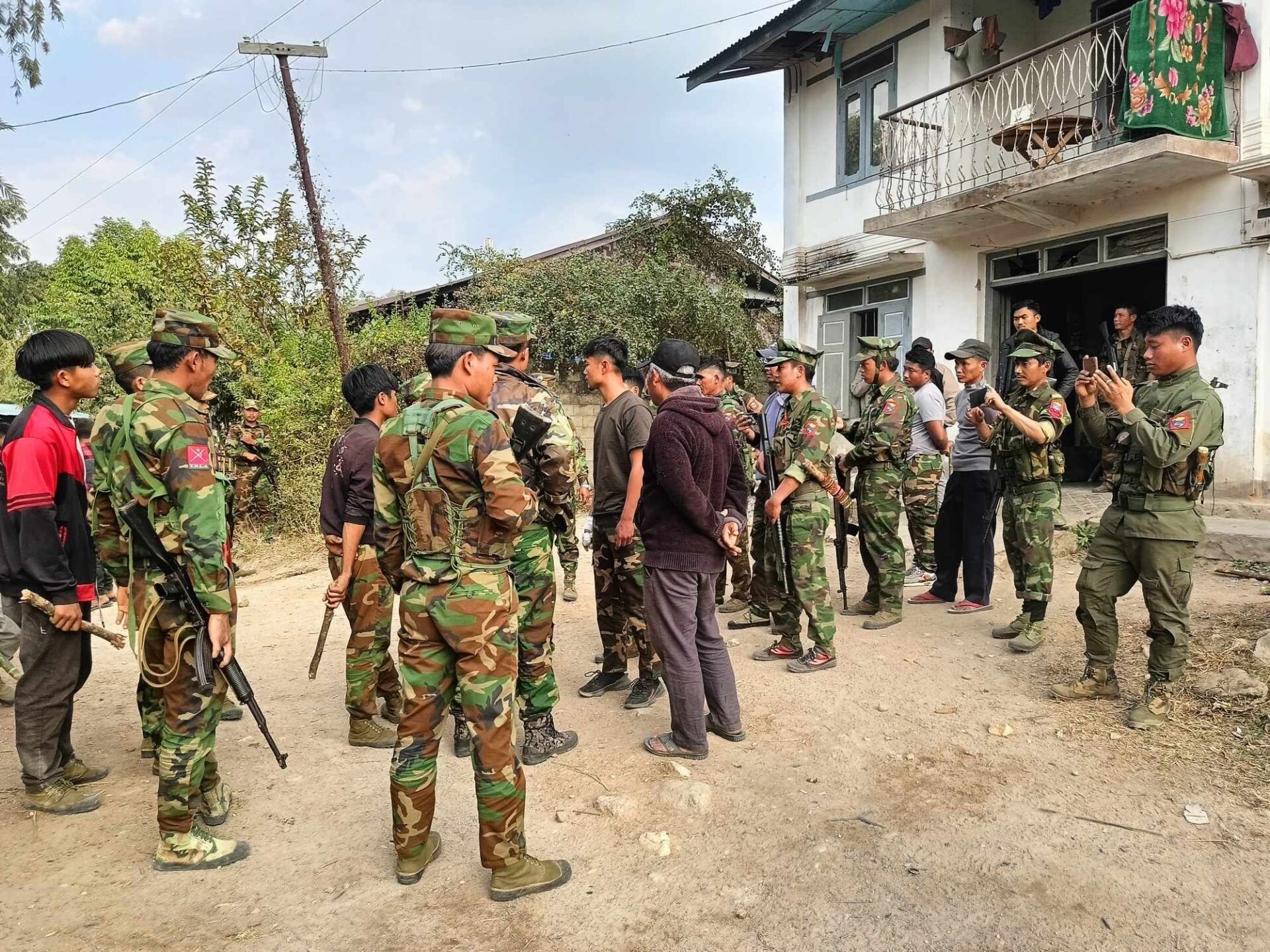Violence and Rebellion in Iranian Balochistan
Violence and Rebellion in Iranian Balochistan
The escalating insurgency in Pakistan’s southwestern province of Balochistan and neighboring regions receives extensive media coverage. Aside from the need to root out radical Islamist opposition movements tied to al-Qaeda and the Taliban, Pakistan faces a series of domestic threats based on ethnic, sectarian and regional rivalries and grievances. Internal tensions also stem from Pakistan’s failure to integrate disparate ethnic, religious and tribal communities in its outlying regions into the fabric of a unified state structure that transcends other allegiances (Terrorism Focus, March 21).
In contrast, evidence of a simmering rebellion and escalating violence between Tehran’s own ethnic Baloch minority and Iranian security forces in Iran’s vast but sparsely populated southeastern province of Sistan-Balochistan is receiving far less attention. Iranian officials and other observers implicate an obscure Baloch militant organization known as Jundallah (Soldiers of God) for spearheading the uprising. The Baloch campaign in Iranian Balochistan, sometimes referred to as West Balochistan by Baloch nationalists, is also being waged online through a sophisticated network of independent news, activist and nationalist websites and chat forums hosted in the region and abroad in multiple languages. Many of these websites openly support the activities of Jundallah and violence in general against Tehran and others perceived to be oppressing Baloch in the region [1].
Ideology and Identity
Iranian Baloch see themselves as the heirs of an ancient and proud tradition distinct from Iran’s ethnic Persian population—that make up a slim majority in Iran—and other groups that comprise the Islamic Republic. Iranian Baloch often identify with the larger Baloch community that resides in Pakistan and Afghanistan in what is referred to as “Greater Balochistan” because tribal and family lines traverse all three countries. The Baloch historical narrative is shaped by a collective sense of oppression and victimization by the imperial machinations of regional and colonial powers that have led to the division of the Baloch nation. One Baloch nationalist website directed toward Western audiences compares the historic plight of the Baloch to that of the Kurds and their longing for a Kurdish state (https://www.baloch2000.org).
Unlike most Iranians who are Shiites, the overwhelming majority of Iran’s Baloch population adheres to the Sunni branch of Islam. Despite a lack of concrete evidence, Iranian authorities and some analysts believe that Jundallah may have ties to Sunni Islamist extremists associated with al-Qaeda and the Taliban operating across the border in neighboring Pakistan and Afghanistan. These allegations are likely based on Jundallah’s reliance on religious symbols and discourse in expressing its nationalist aspirations and deep-seated resentment toward the Shiite-dominated Iranian state. Baloch nationalist organizations also emphasize the Sunni-Shiite element—real or perceived—in the nascent conflict, further proof in Tehran’s view of the group’s Sunni extremist pedigree. Jundallah is also reported to operate under different names that reflect its purported Islamist bent, including Fedayeen-e-Islam (those who sacrifice for Islam) (Asia Times, June 8).
At the same time, tribal allegiances and centers of authority built on family lineage traditionally supersede strict religious adherence among the semi-nomadic Baloch. Instead, Iranian Baloch practice a form of tribal Islam. Many observers argue that Tehran is exaggerating the alleged role of al-Qaeda in the Baloch insurgency in an effort to divert attention from the problems affecting Sistan-Balochistan and to tarnish the Baloch cause. It could also be a way for Tehran to curry favor with the United States amidst pressure to concede on its nuclear ambitions and its meddling in Iraq. Hardliners in Tehran downplay ethnic and sectarian tensions in Iran. They instead blame foreign intelligence services with an interest in destabilizing the country through the support of restive minorities (Asia Times, June 8; al-Jazeera, October 17, 2005).
Although Pakistani Balochistan remains a stronghold of Taliban elements and their local sympathizers, Baloch nationalists there rely far less on Sunni Islamist discourse in framing their cause and instead emphasize ethnic and tribal identity and economic grievances (Deccan Herald, August 12, 2004). Given its large Sunni majority, a Baloch nationalist campaign framed in religious rhetoric would have less resonance in Pakistan. In this sense, Baloch nationalists in Iran may be using Sunni discourse to highlight their distinct place in Shiite-dominated Iran as an oppressed and disadvantaged ethnic and religious minority (The Nation, December 23, 2005).
Jundallah Militancy
Little is known about Jundallah’s origins. The group is led by Abdulmalak Rigi, a 23 year-old Iranian Baloch (https://www.roozonline.com). It is believed to have emerged on the scene in 2003 and is known for bold attacks against high-profile targets, especially government and security officials. In a May telephone interview with Rooz, an Iranian online newspaper, Rigi defended Jundallah’s use of violence as a just means to defend Baloch and Sunni Muslim interests in Iran and to draw attention to the plight of his people whom he describes as Iran’s poorest and the victims of genocide. Significantly, Rigi declares himself an Iranian and Iran as his home. He also claims not to harbor separatist aspirations. Instead, according to Rigi, Jundallah’s goal is to improve the life of Iranian Baloch (https://www.roozonline.com).
In June 2005, Jundallah claimed responsibility for the abduction of a team of Iranian security and intelligence officers traveling in a convoy in Iranian Balochistan along the Pakistani border. In a videotaped ultimatum released to al-Arabiya television, the group justified its attack as revenge against Iranian security forces for committing alleged atrocities in the region. The tape included a demand for the release of Jundallah members and other Baloch activists detained in state prisons in exchange for the safe release of the hostages. Jundallah released a second video statement three weeks later showing the execution of Shehab Mansuri, whom the group claimed was an Iranian intelligence officer (Iran Daily, January 21; al-Arabiya, June 2005).
Another operation in mid-March included the abduction and assassination of several Iranian security officials, including members of the Islamic Revolutionary Guards Corps (IRGC), and aid officials affiliated with the Islamic Red Crescent. A similar operation in May claimed another 12 victims. The group has also been implicated in several strikes against infrastructure in Iranian Balochistan and outside of the province (al-Jazeera, March 22).
Baloch nationalist websites frequently post graphic photographs and video footage of alleged Iranian security operations and atrocities committed against Iranian Baloch civilians (https://www.balochwarna.org). The official website of the Balochistan People’s Party (BPP), a movement advocating the federalization of Iran and what it describes as Baloch sovereignty within a democratic Iran, describes a recent Iranian military operation that allegedly commenced on May 15 as the “Islamic clerical regime’s atrocities towards Sunni Baloch” and included helicopter gunships and airstrikes against civilian centers in Sistan-Balochistan. The website also includes visual evidence of what it claims are innocent victims of Tehran’s crackdown and the recent killing of Sunni Baloch clerics by Iranian security forces (https://www.balochpeople.org).
It is unclear whether a group operating under the name Jundallah in Pakistani Balochistan is affiliated with its Iranian counterpart, although Tehran and Islamabad claim that Baloch militants on both sides of the border cooperate in the area of arms and narcotics trafficking and financing (The News International, January 8; Asia Times, June 8). Given the lawless and porous border region dividing Iranian and Pakistani Balochistan, it is difficult to determine whether this cross-border activity is linked to Jundallah’s campaign or everyday crime typical in the region.
Historically, Tehran and Islamabad have collaborated in suppressing Baloch nationalism, often through brutal military crackdowns. Both countries see Baloch nationalism as a serious threat to regional stability and the territorial integrity of both states. Ongoing negotiations over the construction of a proposed pipeline that would deliver Iranian natural gas to Pakistan and India, much of which would traverse large swaths of Iranian and Pakistani Balochistan, is another point of concern that brings both sides together on the threat posed by Baloch nationalism and the emergence of groups such as Jundallah (Dawn, June 10).
An Underserved Community
Accurate demographic data on Iran’s ethnic Baloch minority does not exist, largely for political reasons. In fact, the same holds for Iran’s other ethnic and religious minorities, especially the sizeable Azerbaijani, Kurdish and Arab communities. Unofficial estimates of Iran’s Baloch population range between one million and upwards of four million. The overwhelming majority of Baloch reside in Pakistan, while the rest inhabit parts of Afghanistan, totaling between 10 and 15 million.
Iranian Balochistan represents one of Iran’s most impoverished and underserved regions. This is partially due to the region’s inhospitable and arid climate. Sistan-Balochistan is also considered a lawless territory where the central government holds little sway. Years of systematic neglect and mismanagement by Tehran are also to blame for the social and economic despair and backwardness that characterize the region. Baloch in Iran suffer from high illiteracy and an overall lack of public services compared to the rest of the country. They are also marginalized politically by Tehran. A Baloch website reportedly run by the BLA claims that Tehran and its neighbors maintain a longstanding policy of suppressing Baloch culture and identity. This includes schemes designed to deliberately impoverish the region in order to ensure the inferior status of ethnic Baloch in Iran and elsewhere in the geographic area (https://www.balochvoice.com).
Conclusion
Tehran’s resort to force in quelling the uprising in Sistan-Balochistan through deployments of special and regular army units is not likely to contribute to lasting peace and stability in the region. Since Iranian Baloch grievances run deep, movements such as Jundallah will maintain a sizeable following among the population. Although there is no credible evidence implicating the group of al-Qaeda’s brand of radicalism or the strain of Taliban-style Sunni extremism violently opposed to Shiite Islam found in parts of Pakistan, Jundallah’s cause does have the potential to be hijacked by militants with a different agenda. This has serious implications for stability, not only in Iran’s Sistan-Balochistan province, but Pakistani Balochistan as well. At the same time, despite its Sunni Islamist rhetoric, Jundallah’s agenda to date remains fixated on Iranian Baloch causes.
Notes
1. For a list of links to a diverse array of Baloch news, activist and nationalist websites that purport to feature detailed accounts of fighting in Iranian Balochistan and Pakistani Balochistan, including graphic photographs and video of alleged victims and military operations, visit the homepage of the Stockholm-based Radio Balochistan, https://www.radiobalochi.org. The Baloch nationalist website hosted by the self-proclaimed “Government of Balochistan in Exile” also contains useful information from a Baloch nationalist perspective, https://governmentofbalochistan.blogspot.com.


